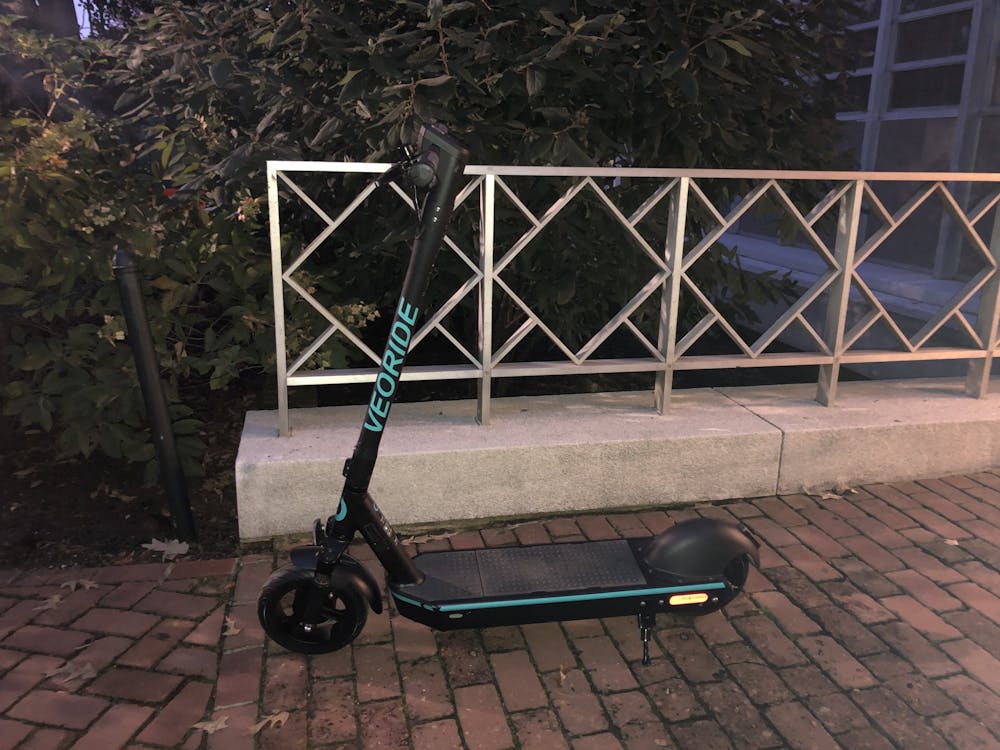Charlottesville City Council is allowing a new provider, VeoRide, to operate under their Dockless Mobility Pilot Program since Oct. 31. VeoRide introduced 150 electric scooters and 50 electric bicycles.
Last November, Charlottesville City Council approved a nine-month program to regulate the use of dockless scooters and bikes.
The Dockless Mobility Pilot Program has been approved to run through Dec. 18 to provide time for citizens to provide feedback and for the Council to collect more data to support developments in ordinance changes in response to the state legislation, according to the press release.
The two providers already approved are Lime, with 125 scooters and 40 electric bikes, and Bird, which voluntarily suspended operations as of June 2019 due to infrequent use and did not return.
In the first nine months of the program, more than 200,000 rides were taken on the e-scooters. This indicates that e-scooters could provide a “viable complement” to Charlottesville’s already existing transportation network, according to the press release. They could also possibly provide sustainability benefits.
At the Council meeting Nov. 18, an updated report will be given on the Dockless Scooter Pilot Program, and residents will be able to comment on changes to the ordinance in relation to where and how the scooters will be ridden.
According to Charlottesville regulations, only private companies own the scooters. Once the company is notified of a scooter issue — such as it being parked obstructing a disability access point — they are required to rectify the situation within two hours. The speeds of the scooter can’t exceed 15 miles per hour, and the scooters are allowed to be ridden on streets but not sidewalks or trails.
Rebecca White, director of the University’s Department of Parking and Transportation, said the University’s policies toward scooter use are in line with City regulations.
“For example, U.Va. and the city are both emphasizing safety and want the device to be operated like a bicycle rather than like a pedestrian,” White said. “For U.Va., that includes docking at a bike rack, UBike hub or motorcycle/moped parking area.”
Some challenges she cited included making scooters and bikes “safer and more equitable,” such as by ensuring that they are not ridden on sidewalks and that docked scooters are not obstructing walkways. White emphasized that the University is working in tandem with the city to implement the regional pilot program.
“I see U.Va. and the city continuing to work together directly for a regional approach as opposed to an approach unique to U.Va.,” White said.
Graham DiLorenzo, first-year College student and scooter rider, cited the scooters’ cheap price and quick transportation in the cold as two reasons they have been “helpful and convenient” to him.
“The more scooters the merrier,” DiLorenzo said.
The city encourages residents with thoughts or concerns about the scooters to email dockless@charlottesville.org.







